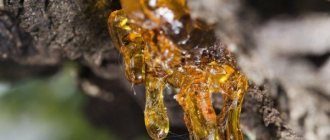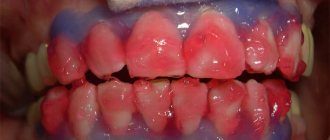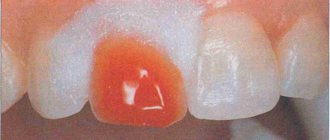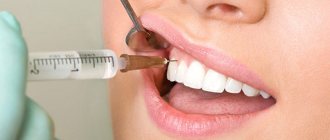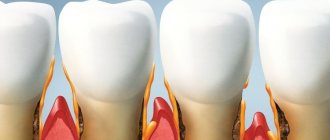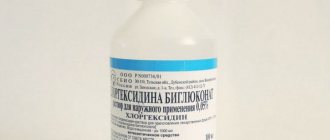Did you know that the human mouth is home to up to seven hundred species of microorganisms, the total number of which is in the millions?! Many of them are “good”, but there are also “bad”. The latter, for example, include streptococcus mutans and candida fungus - they cause caries and provoke gum inflammation. Our immune system, of course, fights them as best it can, however, if the body is weakened, their harmful effects quickly spread beyond the oral cavity and cause serious internal inflammation, disrupting the functioning of the heart, brain and other organs. The good news is that the ancient Ayurvedic practice of oil pulling can help prevent all of this and take your oral hygiene to a whole new level. In today's material, How to Green will tell you about all the beneficial properties of this non-standard procedure, and also explain exactly how to do it.
Unless you're from India, the idea of putting oil in your mouth and swishing vigorously for at least five minutes might not sound appealing to you... And that's okay. As is the case with other healing, but not the most pleasant techniques (for example, acupuncture), regular oil pulling is a matter of habit and, of course, motivation. In the next six points, we will give you a lot of good reasons to give this unusual but very effective way of healing your body a chance.
How can oil pulling help you?
Oil pulling benefits us by harnessing the antimicrobial and antioxidant effects of the oils to promote oral health. Regular oil pulling can prevent oral bacteria and help eliminate bad breath. This practice also treats other dental problems such as gingivitis, tooth decay and oral inflammation.
Oil pulling fights harmful oral bacteria
Our mouths are one of the strongest breeding grounds for bacteria. More than 700 species of bacteria live in the mouth.
This is serious news as the buildup of bacteria can lead to dental caries and other critical oral health issues. But this is where oil pulling comes into play.
Research shows that oil pulling can reduce the concentration of Streptococcus mutans in plaque and saliva. This ultimately helps prevent bacteria-related oral problems.
How does oil work in the mouth?
Oil pulling involves rolling the oil around your mouth, similar to how you use a mouthwash after brushing your teeth. The oil has been used for thousands of years as an Indian folk remedy.
The process of rinsing your mouth with vegetable oil is as follows: in the morning you pour 1 tablespoon of oil into your mouth and roll it in your mouth for 15-20 minutes.
The main benefit of this remedy is that it reduces the amount of harmful bacteria in the mouth that accumulates overnight. And there are actually hundreds of different types of bacteria living in your mouth. Many of them are friendly and help break down food, others are disease-causing and not at all beneficial. Bacteria in your mouth create a biofilm on your teeth, a thin layer known as plaque. Having plaque on your teeth is completely normal, but if it gets out of control, it can cause a variety of problems, including bad breath, gum disease and gingivitis.
The way the oil works is very simple - when you rinse your mouth with oil, the bacteria are washed away and dissolved in the liquid oil. Almost any oil is suitable for rinsing your mouth, as it can attract bacteria. However, coconut and sesame oils are the most popular, mainly due to their pleasant taste. They also have a favorable fatty acid profile, namely high levels of lauric acid, which has antimicrobial properties.
Oil pulling is an ancient Indian remedy for cleaning the mouth and teeth. It claims to reduce the risk of tooth decay, gingivitis and bad breath.
Coconut oil may reduce harmful bacteria in your mouth
Streptococcus mutans is one of the main bacteria in the human mouth and the main culprit of tooth decay. One study of 60 adults found that swishing with coconut oil for 10 minutes every day significantly reduced the amount of S. mutans in saliva in just two weeks compared to rinsing with just distilled water ().
Another study in children found that coconut oil was as effective as standard chlorhexidine mouthwash in reducing S. mutans ().
While these results are promising, more research is needed comparing the effectiveness of coconut oil and other types of oils.
Using coconut oil as a mouthwash can significantly reduce the amount of harmful bacteria such as S. mutans in your mouth.
It is best to use melted coconut oil for rinsing.
Oil pulling may reduce plaque and gingivitis
Gingivitis is caused by inflammation of the gums and occurs when your immune system begins to attack bacteria accumulated in plaque. One study in 20 teenage boys with plaque-induced gingivitis compared the effects of rinsing with sesame oil and a standard chlorhexidine mouthwash. Both remedies were equally effective against gingivitis ().
Coconut oil has similar benefits. One month-long study in 60 teenagers found that daily coconut oil rinsing significantly reduced markers of gingivitis ().
Related articles:
- Essential oils for coughs - how to use
- Shea butter: properties and uses for face and body
Coconut oil pulling can help reduce gum inflammation, also known as gingivitis.
Oil pulling may reduce bad breath
Bad breath, otherwise known as halitosis, is in many cases caused by the smell of chemicals and gases created by bacteria in the mouth. It is associated with infections, gingivitis and general poor oral hygiene. So it makes sense to get rid of some of these harmful bacteria to improve your oral health and reduce the likelihood of bad breath.
A study of 20 adolescents found that sesame oil mouthwash significantly reduced all markers of bad breath and was as effective as chlorhexidine mouthwash ().
However, more research is needed to apply these results to the use of coconut oil. But given that it can reduce plaque and gingivitis, it seems likely.
Some evidence suggests that pulling sesame oil in your mouth reduces bad breath. Coconut oil may have the same effect.
How to do oil pulling
The process is simple and involves several steps:
- Take one tablespoon of the oil you are using (coconut, olive or sesame oil).
- Whisk it in your mouth for 15-20 minutes. Make sure you don't swallow.
- Once done, spit out the oil.
- Rinse your mouth thoroughly with water before taking anything.
- You can also brush your teeth afterwards. But make sure you have two separate toothbrushes - one for your regular brushing and another for post-oil pulling cleaning.
How to rinse your mouth correctly: recipes ^
Why and how to rinse your mouth with oil correctly: reviews from doctors
Rinsing your mouth with sunflower oil
This oil can be used not only to treat diseases of the respiratory organs and gums, but also to eliminate unpleasant odors:
- Waking up, on an empty stomach, fill your mouth with 1 tbsp. l. oil and rinse for 10 minutes;
- After 5-10 minutes, we spit the white clot into the sink, but under no circumstances swallow it!;
- We repeat everything every morning.
You can also add a little regular salt to the mixture - this will only enhance its effect.
Tea tree oil mouthwash
Recipes for preparing potions with tea tree ether depend on what needs to be treated with it:
- To relieve inflammation, treat dental diseases and eliminate unpleasant odor: add 5 drops of ether to 200 g of warm water, rinse your mouth three times a day;
- Against fungal infections: 2 tbsp. l. Mix water with 3 drops of oil. We rinse 3 times a day for a week;
- For bleeding gums: mix a glass of warm water with 100 drops of ether, rinse, then treat the problem area with a mixture of 30 g of St. John's wort oil and 10 g of tea tree ether;
- For periodontal disease and stomatitis: add 1 tsp to 0.5 cups of water. alcohol and 5 drops of oil. We rinse three times a day.
Gargling with flaxseed oil
As with sunflower oil, you can also use flaxseed oil to rinse your mouth:
- We put a large spoonful of oil in our mouth and “drive” it from side to side for 10 minutes;
- Spit it out, swallowing is prohibited.
Olive oil mouthwash
If you need to cleanse the body, cure a sore throat, get rid of oral diseases and strengthen tooth enamel, you should use olive oil:
- Place 1 tbsp in your mouth. l. oil, rinse your mouth with it, moving from one cheek to the other;
- We spit the substance into the sink, which after rinsing turns white;
- We do the same thing every day for 10 days.
We also recommend that you read the article on Happy-womens.com Why you need to clean your tongue.
Oil Pulling: Precautions
- Do not swallow the oil, as it contains bacteria and other toxins collected from your mouth.
- There are some problems with dental fillings or crowns. Although there are no studies showing loosening of dental fillings or crowns with oil pulling, it is best to err on the side of caution. Consult your dentist and do as directed.
- Do not use an oil to which you are sensitive. People with tree nut allergies may have problems using coconut oil. Choose wisely.
But how do you choose? We've already talked a little about this. Let's dive a little deeper into the best oils you can use for oil pulling.
Questions and answers
There are a few questions that get asked repeatedly in the comments, so I've compiled them here, along with the most common answers and any research I could find:
Does oil pulling help remineralize teeth?
Possibly, but more research is needed. I've written about my personal experience with tooth remineralization here, and I've used oil pulling as part of this technique, but I suspect the benefit may be the ability of certain oils to fight the bacteria that cause tooth decay rather than the actual mineral support of the tooth. Coconut and sesame oils are not great sources of the minerals that teeth need, so using them in your mouth will not be a very effective way to provide minerals for your teeth. Since the mouth is constantly protecting and replenishing minerals in teeth and enamel through saliva, it is more important to ensure that the body is getting enough minerals from within so that they are available in saliva.
Can people with bad teeth use the oil?
I could not find any studies related to the safety of oil pulling with various dental conditions. Check with your dentist to see if this is appropriate for your specific dental situation.
Can I swallow oil? Or where should I spit it out?
Please do not swallow the oil after oil pulling. It may contain bacteria, dead skin or other debris from the mouth, and the whole purpose of oil pulling is to remove these substances from the body. Especially with coconut oil, it's also important not to spit it out in the sink, shower or toilet, as it can solidify and clog the drain. Personally, I keep an old supplement container and spit oil in it every morning and throw it away when it's full.
Should I rinse my mouth for 20 minutes?
I had a hard time doing it for a full 20 minutes at first when I first started oil pulling. While this is recommended, it is not a hard and fast rule. It is also not recommended to use a tablespoon of oil. If you can only use a teaspoon and drink for 5 minutes, start with that and don't worry about it. Some people also find that adding a drop of essential oil helps the flavor and makes the oil easier to draw out. Just make sure any oil you use is safe for internal use. I also find that the best time to get the oil out is while I'm in the shower, since that's the only time I'm not talking to my husband or kids or doing anything else. I usually don't shower for 20 minutes, but this at least gets me through some of the time.
Which oil is better to use
First of all, it is important that the oil is of high quality, organic, cold pressed. It is better to buy oil in a specialty store than in a supermarket.
Most often, sesame oil is used for rinsing the mouth, because, according to Ayurvedic teachings, it is especially effective and is absorbed into the oral mucosa better than other oils.
Sesame oil for rinsing - the most popular
Especially if it is slowly heated to 110 degrees and then cooled to room temperature. This is due to the molecular structure and fatty acid composition of sesame oil.
I heat the oil in a water bath (the amount I need for about a few days) and leave it in the bathroom at room temperature in a covered container.
Sesame oil can bind heavy metals and remove them from tissues. The oil stimulates the production of serotonin in the body and stimulates blood circulation.
If you try to rinse your mouth for the first time, start with coconut oil - it has a pleasant taste. Sesame and coconut oils have a high antibacterial effect and have an anti-inflammatory effect.
Other oils are also suitable for the morning procedure, although not everyone may like the intense taste of some of them:
- Sunflower oil
- Olive oil
- Safflower oil
- Linseed oil
- Rapeseed oil
If you don’t like rinsing your mouth with vegetable oil at all, you can use special ready-made oil mixtures from the pharmacy (for example, Oliveda produces a special oil for rinsing your mouth with the addition of mint and lemon oils for taste). But you can prepare such a mixture of oils yourself.
